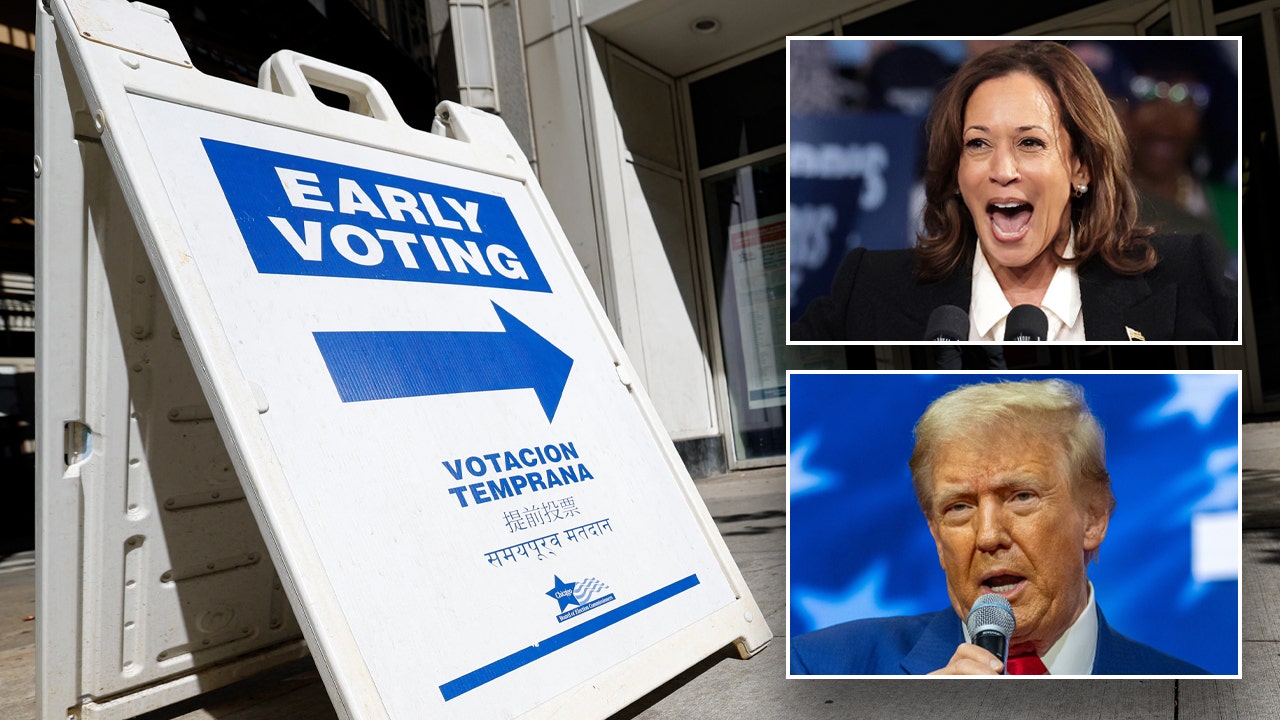How many voters have cast ballots in 2024 election?

Early voting for the 2024 presidential election is well underway across the United States, with both in-person and mail-in ballots flooding in. The Fox News Power Rankings currently rate the race between former President Donald Trump and Vice President Kamala Harris as a toss-up, with the outcome likely to hinge on their performance in seven crucial swing states: Pennsylvania, Georgia, Arizona, Michigan, Wisconsin, Nevada, and North Carolina.
While early voting has been a longstanding practice for certain groups such as military members and individuals with health issues preventing them from going to the polls, many states expanded early voting eligibility in 2020 due to the COVID-19 pandemic. This year, voter enthusiasm is evident as over 81 million ballots have already been cast nationwide.
In the last presidential election, mail-in ballots tended to lean Democratic, with 60% of Democrats opting to vote by mail compared to 32% of Republicans. The early voting breakdown in the battleground states reveals the following numbers:
– Arizona: 2,338,379 early votes cast
– Georgia: 4,017,401 early votes cast
– Michigan: 3,195,928 early votes cast
– Nevada: 1,081,123 early votes cast
– North Carolina: 4,453,345 early votes cast
– Pennsylvania: 1,790,319 early votes cast
– Wisconsin: 1,510,773 early votes cast
Some states like Arizona, Nevada, North Carolina, and Pennsylvania have also provided a party breakdown of the early votes, showing Democratic, Republican, and third-party voter numbers for each state.
While early voting numbers can indicate voter enthusiasm, they do not necessarily predict the final election outcome. In the 2020 election, 71% of voters cast their ballots before Election Day, with a mix of early in-person and mail-in voting. This year, around four in 10 voters are expected to vote early, according to Gallup polling.
Unlike in the previous election, Democrats and Republicans are expected to be less divided on early voting this time around. With the COVID-19 pandemic less of a concern and both parties encouraging their supporters to vote early, the partisan gap in early voting is likely to be smaller than in 2020.
It’s important to note that while early vote data shows the party registration of some voters, it does not reveal how they actually voted. States only release actual vote counts on election night. Additionally, many voters are not affiliated with any party, making their voting preferences a mystery until the ballots are counted.
As the election draws nearer, the focus will shift to Election Day turnout and the final results in the key swing states. The early voting numbers provide a snapshot of voter engagement, but the true test lies in the final tally on November 5th.




